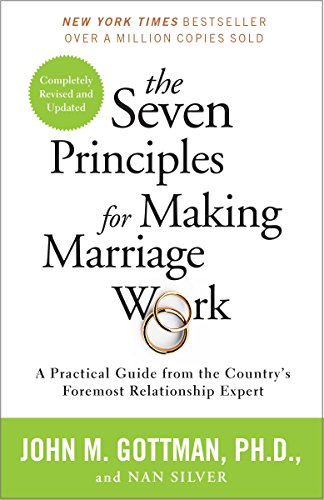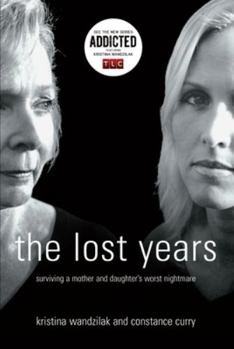Kaley L. Chiles, MA, LPC, LAC
“If you don’t make time for your wellness, you will be forced to take time for your illness.”
I help people become more self-aware and break down the invisible walls that prevent them from connecting with others.
I have always been curious: what prevents us from maintaining wellness in the first place, from having a support system that can help (and we can receive help from) or from benefitting from traditional talk therapy when we go? What leads to feeling lonely, isolated, misunderstood, stuck or confused, sometimes even by our own thoughts, feelings and behaviors? As a counselor, I was immediately drawn to working with those suffering from trauma. This curiosity then expanded to other things that can prevent healing, such as addiction and personality disorders.
Through the years, I witnessed exactly what I saw in research: people are remarkably and innately resilient (yes, even you!) and people in supportive relationships are exponentially resilient. Therefore, no matter the theory or method used (which does matter), the overwhelming majority of positive outcomes are predicted by the strength of the relationship (aka the therapeutic alliance). Creating a relationship with a therapist is a playground, an experiment, for learning which then fosters blossoming new relationships with self and with others (including God).
People suffering from the effects of trauma, addictions, personality disorders, and just plain ole regular folks often struggle to tap into their own resilience or engage with a support system to amplify resilience. Together, let’s figure out how to relate, how to accept ourselves and also push ourselves to grow, how to learn and how to turn knowledge into wisdom. Sound a little vague, unpredictable, scary or uncomfortable? That’s relationships for ya, but we’ll figure out how to stand on foundations that make relationships with ourselves and others feel natural, understandable, stable, and most of all, satisfying.
What’s unique about my approach is that I love to GET THINGS DONE so I work with clients to stay in touch with their goals, progress, or lack thereof and collaboratively problem solve to get results. I often see people who report having tried multiple solutions before starting with me, feeling a bit discouraged, exhausted and confused.
I make no promises that it will be easy, but with every step comes a new sense of discovery, satisfaction, confidence, and hope!
Sliding scale available upon request
I offer counseling and coaching to individuals 16+. I also offer family counseling (which can include children of all ages).
Supervision for LPCs and LACs in the state of Colorado is available upon request.
Preferred Primary Modalities (I believe modalities should be paired to fit the client’s needs):
*Can provide Christian counseling or counseling that integrates faith upon request
Attachment Based Psychotherapy
Dialectical Behavior Therapy (DBT)/Radically Open Dialectical Behavior Therapy (RO DBT)
Somatic Experiencing (SE) techniques
Gottman Method couples therapy
Eye Movement Desensitization and Reprocessing (EMDR) for trauma and addictions
Professional Education:
Master of Arts in Clinical Mental Health
Bachelor of Arts in Biblical Studies, minor in Psychology
Some Certifications & Trainings:
Attachment, Trauma & Psychotherapy: Neural Integration as a Pathway to Resilience and Well Being
Principles of Addictions Treatment
Personality Disorders Course: Advanced Diagnosis, Treatment, & Management
Best Practices & Advanced Clinical Supervision
Dialectical Behavior Therapy (DBT): 4 Day Intensive Certification Training Course
Divorce Busting Level I
Gottman Method Couples Therapy, Level I and II
EMDR Basic Training
The Biology of Traumatic Stress Reactions and Empowering Skills to Enable Healing
Advanced Motivational Interviewing
When There Are No Words: Reprocessing Early Trauma & Neglect Held in Implicit Memory
Domestic & Intimate Partner Violence Training: Trauma-Informed Interventions, Documentation, Reporting and Ethical Issues
Cognitive Processing Therapy
Prolonged Exposure
Cognitive Behavioral therapy for Insomnia
A little bit about my United States Supreme Court case
A 5 minute synopsis: https://breakpoint.org/scotus-decides-whether-christian-counselors-will-be-able-to-help-children/
Resources for the Journey
*no resource is perfect, so it is important to explore and evaluate what to keep
Trauma
The best succinct explanation of trauma I have read (intro plus ch. 1-4)
Podcast: The Place We Find Ourselves by Adam Young
Emotional intelligence
Marriage
Attachment
How We Love: Love Style Quiz: https://howwelove.com/love-style-quiz/
How We Love: Secure Connector Quiz: https://howwelove.com/secure-connector-quiz/
Five Primary Conditions that Promote Secure Attachment:
https://therapistuncensored.com/wp-content/uploads/2017/06/BrownElliott.5Conditions-1.pdf
Parenting
Addiction
Additional Addiction Resources
Spiritual Direction, Coaching (“peer recovery” for substance abuse recovery)
AA (Alcoholics Anonymous), SAA (Sex Addicts Anonymous), Eating Disorders Anonymous, Overeaters Anonymous, etc.
Al-anon (loved ones work the 12 steps too), Al-ateen (ages 13-18)
ACA (Adult Children of Alcoholics and Dysfunctional Families)
DBSA (Depression and Bipolar Support Alliance)
CRAFT (Community Reinforcement and Family Training)- Spring EOP in Colorado Springs
SMART Recovery (non-faith based)
Celebrate Recovery (faith based)
Moderation Management (does not help moderation-seeking minors or moderate use of illicit drugs; asserts that one cannot “moderate” use of illegal substances or under age substance use due to legal consequences, etc.)
Spirituality & Faith
Watch the video above and then find out what Healing Journey is all about as well as find dates/times in your area: https://www.hishealinglight.org/healing-journey
Podcast: Being Known by Curt Thompson


































































